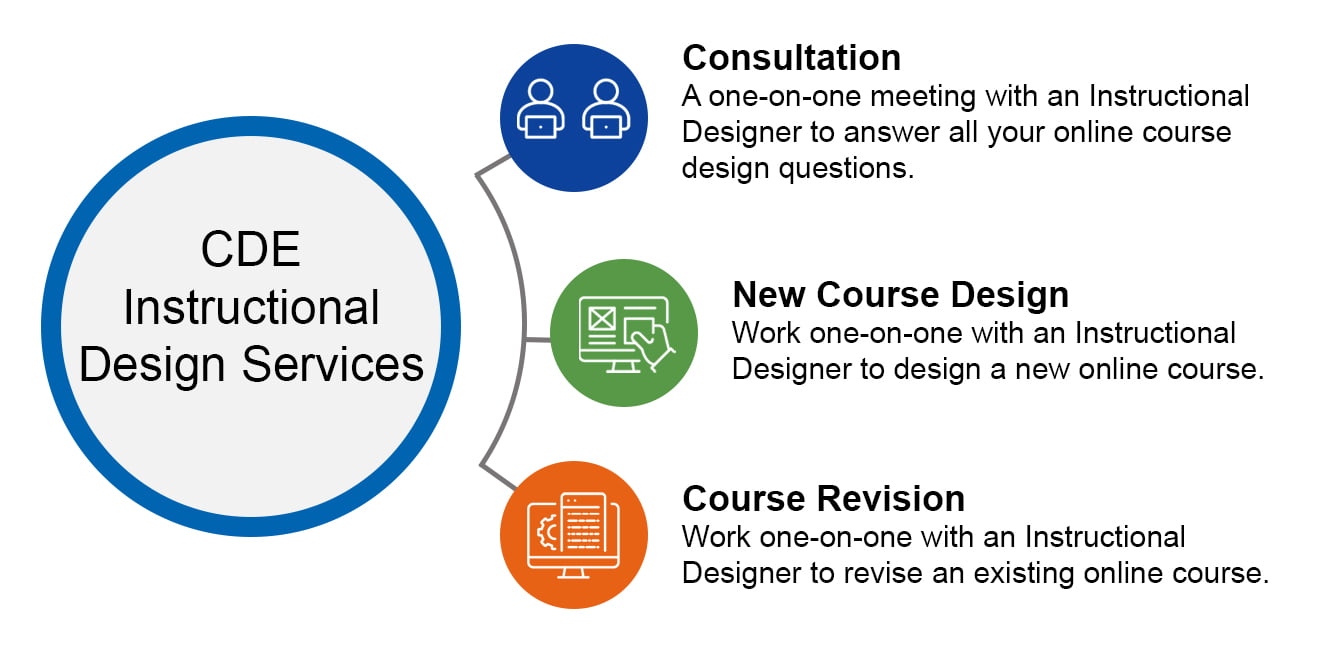In General:
- Requires less then 20 hours of work
- Results in changes to less than 50% of the course
Includes, but is not limited to:
- Ongoing course maintenance
- Instructor information update
- Minor change in instructional materials: new text edition, updated articles, original instructional materials, etc.
- Minor update of objectives, assessments, etc. to reflect instructional materials change
- Introduction or update of some media
